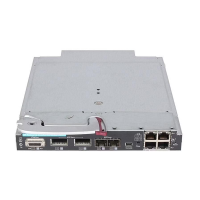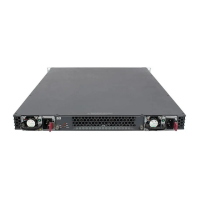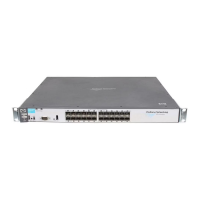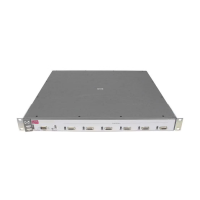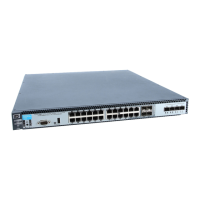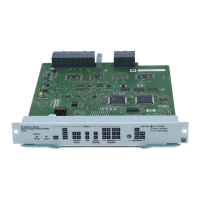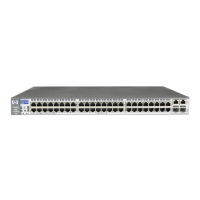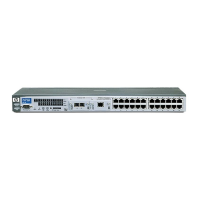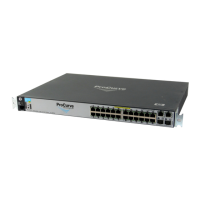13-65
Configuring for Network Management Applications
LLDP (Link-Layer Discovery Protocol)
— Continued—
Type/Value Pairs (
CA-TYPE and CA-VALUE): This is a
series of data pairs, each composed of a location data
“type” specifier and the corresponding location data
for that type. That is, the first value in a pair is
expected to be the civic address “type” number (
CA-
TYPE
), and the second value in a pair is expected to
be the corresponding civic address data (
CA-VALUE).
For example, if the CA-TYPE for “city name” is “3”, then
the type/value pair to define the city of Paris is “
3
Paris
”. Multiple type/value pairs can be entered in any
order, although it is recommended that multiple
pairs be entered in ascending order of the
CA-
TYPE
.When an emergency call is placed from a
properly configured class 3 endpoint device to an
appropriate PSAP, the country code, device type, and
type/value pairs configured on the switch port are
included in the transmission. The “type” specifiers
are used by the PSAP to identify and organize the
location data components in an understandable
format for response personnel to interpret. A civic-
addr command requires a minimum of one type/
value pair, but typically includes multiple type/value
pairs as needed to configure a complete set of data
describing a given location.
CA-TYPE: This is the first
entry in a type/value pair, and is a number defining
the type of data contained in the second entry in the
type/value pair (
CA-VALUE). Some examples of CA-TYPE
specifiers include:
•3 = city
• 6 = street (name)
• 25 = building name
(Range: 0 - 255)
For a sample listing of
CA-TYPE specifiers, refer to table
13-4 on page 13-67.
CA-VALUE: This is the second entry in a type/value
pair, and is an alphanumeric string containing
the location information corresponding to the
immediately preceding
CA-TYPE entry. Strings
are delimited by either blank spaces, single
quotes (‘ ... ‘), or double quotes (“ ... “). Each string
should represent a specific data type in a set of
unique type/value pairs comprising the
description of a location, and each string must
be preceded by a CA-TYPE number identifying the
type of data in the string.

